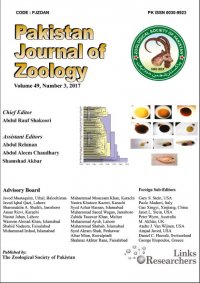Immunomodulatory Effect of Bacillus licheniformis Again st the Aflatoxins Induced Molecular Pathological Changes in Rat Model
Immunomodulatory Effect of Bacillus licheniformis Again st the Aflatoxins Induced Molecular Pathological Changes in Rat Model
Samia S. Alkhalil1, Faisal Al-Sarraj2, Abeer S. Aloufi3, Zuhair M. Mohammedsaleh4, Mamdoh S. Moawadh4, Fayez M. Saleh5, Majid Al-Zahrani6, Waheeb Aggad7, Youssef S. Alghamdi8, Mutaib M. Mashraqi9, Saleh Alshamrani9 and
Mona H. Soliman10,11*
ABSTRACT
Aflatoxicosis is one of the major issues for the public health. Control of aflatoxins is necessary to avoid the health hazards in human and animals. Present study was designed to evaluate the efficacy of Bacillus licheniformis as a novel feed additive for control of aflatoxicosis. A total of 40 rats were equally divided into the four groups. The first group (BD) was kept as control, treated with basal diet. In second group (AF), the rats were treated with aflatoxins (28 µg/kg BW). In the third group (AFBL) the rats were treated with aflatoxins (28 µg/g BW) and Bacillus licheniformis (1 × 108 cfu/mL). In the fourth group (BDBL) the rats were treated with only Bacillus licheniformis (1 × 108 cfu/mL). The parameters studied were, phagocytic response by carbon clearance assay system, lymphoproliferative response to PHA-P, antibody response to SRBCs, total antioxidant capacity and total oxidant status of the rats and interleukin concentrations, along with histopathology of organs. Results of this study confirmed the immunomodulation and antioxidant capacity of Bacillus licheniformis against 28 µg/kg BW of aflatoxins.
To share on other social networks, click on any share button. What are these?









